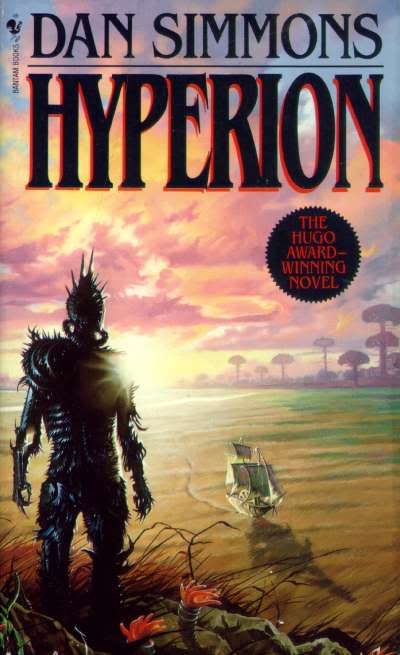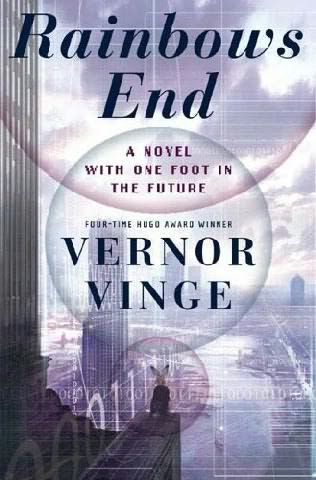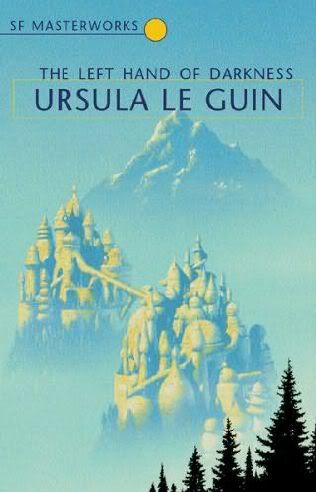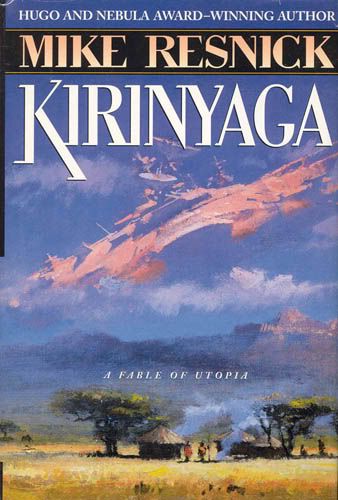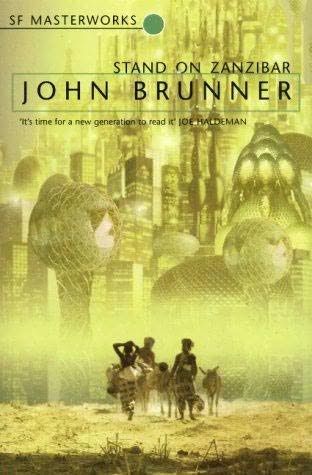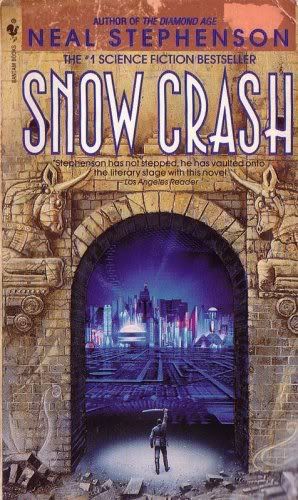Hotel Reservations and Pricing
So, because when I'm looking back there's a huge hole for rant posts during the month of November, I decided to create this post and backdate it into November to make up for the big blank space. It was actually written in mid-December, 2007.
In a previous post about hotels, I mentioned how price and occupancy correlate, and that this is a big subject, so here's a quick synopsis of it:
The busier a hotel is, the more rooms cost.
Yeah, I know that sounds easy, but there are a lot of really complicated sliding scales that you can throw into this to complicate matters. And, since everyone and their mothers want to get the best rates, you'll have a lot of people arguing about how much the rooms cost.
In the grand scheme of things, the most important thing that determines the price of any hotel is how many people want to stay there, which is itself made up of a few different variables.
Of the three components that determine how attractive your hotel is to potential guests, there are three continua.
The first variable is location. Is the hotel in a popular business or tourist destination such as the Bahamas or New York City? If so, people will want to stay there. People will even want to stay in out of the way places in Montana and the Florida fens, so there are hotels in those places to accommodate them. However, a lot more people want to get a room in Manhattan for the night, so even though there are more options, you'll be paying more.
The second variable is how nice the hotel is. This is where stars and AAA Diamonds come in. The more stars or diamonds, the more you'll pay. However, this is still modified by the location. A four star hotel in LA costs more than a four star hotel in Kansas. If you have a nice hotel, people will want to stay there.
The third variable is price, which seems odd considering that this is a sub-variable of how to determine a price for a hotel room, but it does make sense. I just hope I can explain it. People will spend hours and lots of dollars searching out the absolute best price on anything, and with the internet that means that you can be competitive by fiddling with your price to make it appear first in the search engines. People are attracted to lowest prices, which is why this variable can be self defeating. Yeah, I could sell my rooms at$5 a night and sell out every single night, but I certainly wouldn't be covering my costs. Big, nice hotels don't play this game. The higher the star value, they less they'll negotiate their price down to make it attractive to people looking for a good deal.
So, these three factors combine together to form the typical demand side of the equation, balanced by the supply. And in hotels, you have a fixed supply. As much as I wish that we could expand the hotel by twenty rooms for our busiest nights of the year, that isn't possible. But there are some variables there too.
First, we have a few "last sell" rooms. Many hotels have these, or something similar. They're the rooms that you wait until you're sold out of everything else to sell. Sometimes these rooms are a bit smaller or in an awkward position (such as next to the dumpster). Usually, by the time you need to use these rooms, people are happy enough to have a roof over their head that the hotel get top dollar for sucky rooms. If a hotel has these (and not all hotels do), they usually won't quote you a rate on them when you first call unless they're sold out of everything else. You may be able to book them through the website though. These rooms are going to suck compared to a normal room, so if you're looking for the best bang for your buck, you may not want to automatically ask if that's the smallest and cheapest room that they've got available.
Second, if the hotel is busy (and/or the surrounding city too), that means that there is a sort of artificial reduction in the supply, and hotels will stop quoting their best rates to you. If they've only got six rooms left and you're the fourth person that's called in the last hour about finding a room, they've got the upper hand. You're going to pay through your nose to find a room, and there isn't much that you can do about it.
There's something that I haven't mentioned yet, and that's conferences. Conferences are how many hotels survive, and they create little pockets of extreme busyness during completely odd periods of time. Even in the low season for the hotel, a conference can easily sell out a hotel.
Hotels sometimes have negotiated rates (Re: Travelocity, State or Federal government, military), and often there is a negotiated rate with conferences as well. The conference rate is usually a good rate, because the hotel is guaranteed to fill up. The conference will have a limit on how many of those rates are available. They fill up fast so book early. And when they're gone, they're gone.
Do not expect us to honor the rate if the conference room block is full. If you are the guest speaker, talk to the person making the hotel arrangements and they might be able to do something about it, but the guy at the hotel taking your reservation can't help you with that. Yeah, sometimes we'll have suites available. I'll offer you a discount on those if the room block is sold out, but don't expect me to go down to $85 a night on a $359 room. That's not worth it, and suggesting it to the person making your reservation is a bad idea (we know how much the rooms are worth, and we take it personally when people under value them).
If you aren't part of a conference, you won't get a conference rate. They check, we check, and if you aren't on the list, the group can purge you.
Right, along that same line; don't ask for the government discount and then ask if we have any recommendations for spas, day trips, or bars. I'm not stupid, I just work at a menial job. You actually need to be on government business to get a government discount, and a real government agency will be able to provide a letter on department letterhead to the hotel that we can put on file.
All of this means that if you're calling for a weekend during the off season, and you get a high rate, it's possible that you're asking for a room during a period of time that a conference is going to be in the hotel. That will create a reduced supply, because hotels usually fill up by about 70% when there is a conference in house.
Okay, now we've got supply and demand, but we're still not done. Hotels have seasons. For example, hotels in Miami are slow during the summer because the temperatures are in the 100+ Fahrenheit range and hotels in Montana are slow during the winter because you can't get out from under the snow. Hotels in NYC are always busy. That means that you'll have summer and winter (or "high" and "off") seasons where the prices vary. I'm in the unusual position of working at a hotel that has an off season, a shoulder season, and a high season but most good hotels just have 2 seasons.
These seasonal rates are based on anticipated business (and busyness), so that we can quote people calling a year in advance and two days in advance about the same rates.
When you're talking to a reservations person on the phone, and you tell them that you want to book for May 10th for two nights, they look down at a little sheet in front of them. It has their two (or three) seasonal rates listed, and usually a 10%, 20%, and 30% discount column. Those columns represent different kinds of discounts (AAA, AARP, more than 3 nights, etc). For each eligible discount you'll move over one column.
That most expensive rate is the rack rate. That's the "quotable" rate. If you have a coupon for 20% off a hotel room for a night, that is 20% off the rack rate.
Now, most people don't stay in hotels at the rack rate. For example, I'll say "I have this beautiful room that normally goes for $419, and I can offer it to you for $339," that's a 20% discount on the price of the room already. If you mention that you are AAA eligible at this point in the conversation, I might play ball with you and offer you $319, or I might just point out the rate that I quoted you is already about 10% better than the AAA rate.
That's where being nice to the person on the phone comes in. The nicer you are, the better of a rate (and possibly room) you'll get.
Again, you have to remember that even if you get 30% off this time, you might not get it next time. If you say "The last time I stayed there, that kind of room was $259!" my response will probably be along the lines of "Isn't inflation a funny thing." Only I'll try to make that sound polite.
This would be a good time to mention that you aren't a repeat guest until you've stayed here 5+ times in the last two years or for any 4 consecutive years in a row. Some hotels will offer the same rates year to year to guests that prove that they're reliable business from year to year, but if you stayed at this hotel once two years ago, that doesn't prove anything to me. I don't care, and I certainly won't drop your rate for that.
Also, sometimes the people taking your reservation are paid on commission, so if you pretend to be the reservation agent's best friend and ask for an employee or government rate, not only are you potentially trying to screw over the hotel, you might be screwing over the reservation agent him or herself. This means that if you aren't eligible for the employee or government rate, don't ask for it. Otherwise, I suspect that the agent is about to give you the cold shoulder, as much as he or she can.
Sometimes you can negotiate with reservations attendants a little bit. Not always. The rules are: Be Polite, be patient, and if you don't like the price, just tell us that you'll call back. That's the easiest way to get off the line.
I'm sure you've noticed the most important theme by now: being polite is always better than being rude. If I don't like you, why would I work to get you a nice room?
You usually pay more for nicer rooms, incidentally. I have absolutely no idea why people think this doesn't apply to them. Out suites are beautiful, but you'll pay more for them. Our two bedroom suits are even more beautiful, but obviously you'll still be paying more than for a one bedroom suite. The hotel I currently work for has a one bedroom executive suite on a restricted access concierge floor. It is the most expensive room in the hotel. "Standard" rooms, with one queen size bed are the least expensive. If I mention that two different types of rooms are available, please don't assume that the price that I give for the standard room can be substituted for the executive suite. (This happens a surprisingly large amount of the time.)
Finally, you may want to explain the circumstances of your visit to the reservation agent. If you make it clear why you need a room with two beds and a pull out sofa sleeper, the agent will probably help you make arrangements for that. If you explain why you need a refrigerator (i.e. "I need to keep my insulin cold"), we're more likely to work to get you a fridge. The more information that we have, the better the suggestions that we can make.
Okay, that's an acceptable rant on hotel pricing so let me move on to a bit of a rant on reservations in general.
If a hotel doesn't tell you what their cancellation policy is, ask them. This is an important bit of information. Listen to what they have to say. If you don't understand, ask them to explain. Because when you call up the hotel and try to cancel, things can get sticky if you've violated the cancellation policy.
Another important concept is the difference between guaranteeing a reservation and "requesting" something. Guaranteeing something in the hotel business is better than "requesting" it, but it's not an absolute, especially at corporate hotels. We'll do our best though, but if you really want to be sure that you get a non-smoking room, tell the person taking your reservation that you just had lung surgery ("I'm allergic" isn't going to work. If you don't die when someone smokes a cigarette next to you, I don't care). Most hotels will guarantee smoking/non-smoking and bed type. Nearly everything else is a request.
I realize how stupid that is. If it was in my power to change that, I would. The large chain that I used to work for was especially bad at this.
Request an upper, quiet room when available. Upper rooms are usually quieter, and sometimes there's a better chance of being bumped to a nicer room. If you haven't been to the hotel and don't know their layout, don't bother requesting a specific direction to face because you won't know what to ask for and we can't read your mind and figure it out for you.
If you get to the hotel, and you don't like the room, don't wait to tell the front desk. The earlier you tell them, the better your chance of getting another room. Also, it's a lot easier to clean a room if you've only been in it for ten minutes rather than an hour, which the hotel staff will appreciate. If it's 11pm and you don't like the room, but you won't die to stay there, then ask in the morning, and you'll be put at the top of the list.
Finally, there are in-house and central reservations facilities. In-house know the hotel, know the best rates, and can answer nearly any question that you have. Central reservations are what you get after hours, or in the case of some chains, all of the time. They won't be able to describe the views, they won't have the authority to guarantee more than bed type, and they won't be able to negotiate as much as in-house reservations.
If you get central reservations, ask what time you can call back and get in-house reservations.
In a previous post about hotels, I mentioned how price and occupancy correlate, and that this is a big subject, so here's a quick synopsis of it:
The busier a hotel is, the more rooms cost.
Yeah, I know that sounds easy, but there are a lot of really complicated sliding scales that you can throw into this to complicate matters. And, since everyone and their mothers want to get the best rates, you'll have a lot of people arguing about how much the rooms cost.
In the grand scheme of things, the most important thing that determines the price of any hotel is how many people want to stay there, which is itself made up of a few different variables.
Of the three components that determine how attractive your hotel is to potential guests, there are three continua.
The first variable is location. Is the hotel in a popular business or tourist destination such as the Bahamas or New York City? If so, people will want to stay there. People will even want to stay in out of the way places in Montana and the Florida fens, so there are hotels in those places to accommodate them. However, a lot more people want to get a room in Manhattan for the night, so even though there are more options, you'll be paying more.
The second variable is how nice the hotel is. This is where stars and AAA Diamonds come in. The more stars or diamonds, the more you'll pay. However, this is still modified by the location. A four star hotel in LA costs more than a four star hotel in Kansas. If you have a nice hotel, people will want to stay there.
The third variable is price, which seems odd considering that this is a sub-variable of how to determine a price for a hotel room, but it does make sense. I just hope I can explain it. People will spend hours and lots of dollars searching out the absolute best price on anything, and with the internet that means that you can be competitive by fiddling with your price to make it appear first in the search engines. People are attracted to lowest prices, which is why this variable can be self defeating. Yeah, I could sell my rooms at$5 a night and sell out every single night, but I certainly wouldn't be covering my costs. Big, nice hotels don't play this game. The higher the star value, they less they'll negotiate their price down to make it attractive to people looking for a good deal.
So, these three factors combine together to form the typical demand side of the equation, balanced by the supply. And in hotels, you have a fixed supply. As much as I wish that we could expand the hotel by twenty rooms for our busiest nights of the year, that isn't possible. But there are some variables there too.
First, we have a few "last sell" rooms. Many hotels have these, or something similar. They're the rooms that you wait until you're sold out of everything else to sell. Sometimes these rooms are a bit smaller or in an awkward position (such as next to the dumpster). Usually, by the time you need to use these rooms, people are happy enough to have a roof over their head that the hotel get top dollar for sucky rooms. If a hotel has these (and not all hotels do), they usually won't quote you a rate on them when you first call unless they're sold out of everything else. You may be able to book them through the website though. These rooms are going to suck compared to a normal room, so if you're looking for the best bang for your buck, you may not want to automatically ask if that's the smallest and cheapest room that they've got available.
Second, if the hotel is busy (and/or the surrounding city too), that means that there is a sort of artificial reduction in the supply, and hotels will stop quoting their best rates to you. If they've only got six rooms left and you're the fourth person that's called in the last hour about finding a room, they've got the upper hand. You're going to pay through your nose to find a room, and there isn't much that you can do about it.
There's something that I haven't mentioned yet, and that's conferences. Conferences are how many hotels survive, and they create little pockets of extreme busyness during completely odd periods of time. Even in the low season for the hotel, a conference can easily sell out a hotel.
Hotels sometimes have negotiated rates (Re: Travelocity, State or Federal government, military), and often there is a negotiated rate with conferences as well. The conference rate is usually a good rate, because the hotel is guaranteed to fill up. The conference will have a limit on how many of those rates are available. They fill up fast so book early. And when they're gone, they're gone.
Do not expect us to honor the rate if the conference room block is full. If you are the guest speaker, talk to the person making the hotel arrangements and they might be able to do something about it, but the guy at the hotel taking your reservation can't help you with that. Yeah, sometimes we'll have suites available. I'll offer you a discount on those if the room block is sold out, but don't expect me to go down to $85 a night on a $359 room. That's not worth it, and suggesting it to the person making your reservation is a bad idea (we know how much the rooms are worth, and we take it personally when people under value them).
If you aren't part of a conference, you won't get a conference rate. They check, we check, and if you aren't on the list, the group can purge you.
Right, along that same line; don't ask for the government discount and then ask if we have any recommendations for spas, day trips, or bars. I'm not stupid, I just work at a menial job. You actually need to be on government business to get a government discount, and a real government agency will be able to provide a letter on department letterhead to the hotel that we can put on file.
All of this means that if you're calling for a weekend during the off season, and you get a high rate, it's possible that you're asking for a room during a period of time that a conference is going to be in the hotel. That will create a reduced supply, because hotels usually fill up by about 70% when there is a conference in house.
Okay, now we've got supply and demand, but we're still not done. Hotels have seasons. For example, hotels in Miami are slow during the summer because the temperatures are in the 100+ Fahrenheit range and hotels in Montana are slow during the winter because you can't get out from under the snow. Hotels in NYC are always busy. That means that you'll have summer and winter (or "high" and "off") seasons where the prices vary. I'm in the unusual position of working at a hotel that has an off season, a shoulder season, and a high season but most good hotels just have 2 seasons.
These seasonal rates are based on anticipated business (and busyness), so that we can quote people calling a year in advance and two days in advance about the same rates.
When you're talking to a reservations person on the phone, and you tell them that you want to book for May 10th for two nights, they look down at a little sheet in front of them. It has their two (or three) seasonal rates listed, and usually a 10%, 20%, and 30% discount column. Those columns represent different kinds of discounts (AAA, AARP, more than 3 nights, etc). For each eligible discount you'll move over one column.
That most expensive rate is the rack rate. That's the "quotable" rate. If you have a coupon for 20% off a hotel room for a night, that is 20% off the rack rate.
Now, most people don't stay in hotels at the rack rate. For example, I'll say "I have this beautiful room that normally goes for $419, and I can offer it to you for $339," that's a 20% discount on the price of the room already. If you mention that you are AAA eligible at this point in the conversation, I might play ball with you and offer you $319, or I might just point out the rate that I quoted you is already about 10% better than the AAA rate.
That's where being nice to the person on the phone comes in. The nicer you are, the better of a rate (and possibly room) you'll get.
Again, you have to remember that even if you get 30% off this time, you might not get it next time. If you say "The last time I stayed there, that kind of room was $259!" my response will probably be along the lines of "Isn't inflation a funny thing." Only I'll try to make that sound polite.
This would be a good time to mention that you aren't a repeat guest until you've stayed here 5+ times in the last two years or for any 4 consecutive years in a row. Some hotels will offer the same rates year to year to guests that prove that they're reliable business from year to year, but if you stayed at this hotel once two years ago, that doesn't prove anything to me. I don't care, and I certainly won't drop your rate for that.
Also, sometimes the people taking your reservation are paid on commission, so if you pretend to be the reservation agent's best friend and ask for an employee or government rate, not only are you potentially trying to screw over the hotel, you might be screwing over the reservation agent him or herself. This means that if you aren't eligible for the employee or government rate, don't ask for it. Otherwise, I suspect that the agent is about to give you the cold shoulder, as much as he or she can.
Sometimes you can negotiate with reservations attendants a little bit. Not always. The rules are: Be Polite, be patient, and if you don't like the price, just tell us that you'll call back. That's the easiest way to get off the line.
I'm sure you've noticed the most important theme by now: being polite is always better than being rude. If I don't like you, why would I work to get you a nice room?
You usually pay more for nicer rooms, incidentally. I have absolutely no idea why people think this doesn't apply to them. Out suites are beautiful, but you'll pay more for them. Our two bedroom suits are even more beautiful, but obviously you'll still be paying more than for a one bedroom suite. The hotel I currently work for has a one bedroom executive suite on a restricted access concierge floor. It is the most expensive room in the hotel. "Standard" rooms, with one queen size bed are the least expensive. If I mention that two different types of rooms are available, please don't assume that the price that I give for the standard room can be substituted for the executive suite. (This happens a surprisingly large amount of the time.)
Finally, you may want to explain the circumstances of your visit to the reservation agent. If you make it clear why you need a room with two beds and a pull out sofa sleeper, the agent will probably help you make arrangements for that. If you explain why you need a refrigerator (i.e. "I need to keep my insulin cold"), we're more likely to work to get you a fridge. The more information that we have, the better the suggestions that we can make.
Okay, that's an acceptable rant on hotel pricing so let me move on to a bit of a rant on reservations in general.
If a hotel doesn't tell you what their cancellation policy is, ask them. This is an important bit of information. Listen to what they have to say. If you don't understand, ask them to explain. Because when you call up the hotel and try to cancel, things can get sticky if you've violated the cancellation policy.
Another important concept is the difference between guaranteeing a reservation and "requesting" something. Guaranteeing something in the hotel business is better than "requesting" it, but it's not an absolute, especially at corporate hotels. We'll do our best though, but if you really want to be sure that you get a non-smoking room, tell the person taking your reservation that you just had lung surgery ("I'm allergic" isn't going to work. If you don't die when someone smokes a cigarette next to you, I don't care). Most hotels will guarantee smoking/non-smoking and bed type. Nearly everything else is a request.
I realize how stupid that is. If it was in my power to change that, I would. The large chain that I used to work for was especially bad at this.
Request an upper, quiet room when available. Upper rooms are usually quieter, and sometimes there's a better chance of being bumped to a nicer room. If you haven't been to the hotel and don't know their layout, don't bother requesting a specific direction to face because you won't know what to ask for and we can't read your mind and figure it out for you.
If you get to the hotel, and you don't like the room, don't wait to tell the front desk. The earlier you tell them, the better your chance of getting another room. Also, it's a lot easier to clean a room if you've only been in it for ten minutes rather than an hour, which the hotel staff will appreciate. If it's 11pm and you don't like the room, but you won't die to stay there, then ask in the morning, and you'll be put at the top of the list.
Finally, there are in-house and central reservations facilities. In-house know the hotel, know the best rates, and can answer nearly any question that you have. Central reservations are what you get after hours, or in the case of some chains, all of the time. They won't be able to describe the views, they won't have the authority to guarantee more than bed type, and they won't be able to negotiate as much as in-house reservations.
If you get central reservations, ask what time you can call back and get in-house reservations.
